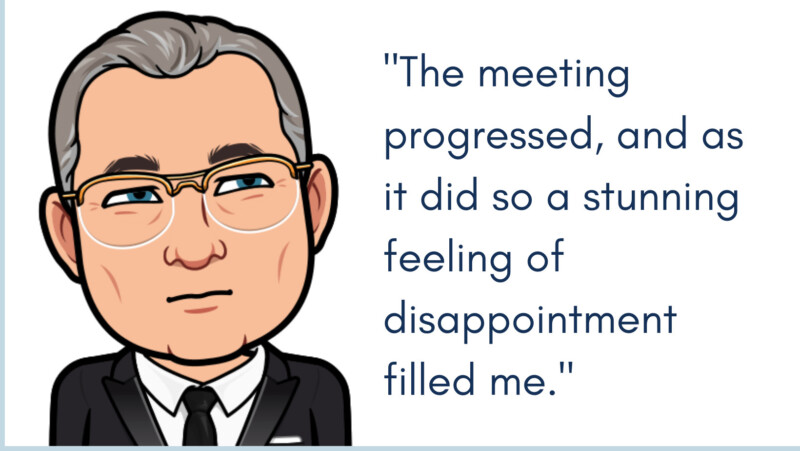How The Drive For Organizational Efficiency Destroys Trauma-Informed Care
I sat in a meeting of leaders from a variety of nonprofits that provide services to the mental health community. The meeting progressed, and as it did so a stunning feeling of disappointment filled me. As I listened to their conversations over and over again it came back to how an organization can be efficient, how do we bill effectively, and the discussion of how to work with highly vulnerable people was lost, or perhaps actively avoided in the narcissistic self-interest of the mental healthcare system.
“…these leaders talked about being trauma-informed but had no plan or interest in creating an environment that was trauma-informed.”
You may be asking yourself, why this is so irritating to me. So here is an easy example, in 2010 I had a client reach out that had a massive and complex trauma history asking to schedule an appointment. He was driving 150 miles to meet with our therapists. The client called when he was only several miles from the office and canceled. He did this several more times, however, he pulled into the parking lot the second time, and actually made it into the building the third time, and it was actually his 5th attempt before he walked into the office, and he could only tolerate being there about 10 minutes and he had to leave. Over the next 4 sessions, he was able to add an additional 5 minutes to each session.
As I was explaining the experience of this very vulnerable client, people in leadership roles sitting around the room, said, “We wouldn’t ever tolerate that, if they no-show or cancel 3 appointments in a row, we won’t schedule the client again, it isn’t efficient!” I went on to recount the successful completion of this client’s treatment, the transformation that he had made, and the benefit of meeting the client where the client is. One of the leaders, in a sarcastic comment, said we are not providing Cadillac services, we are the chevy dealers of mental health. Another chimed in and said they have everything figured on an hour session, and that they wouldn’t want to work with anyone that couldn’t tolerate staying for the full hour. I was deeply disappointed that there was an inherent double standard, these leaders talked about being trauma-informed but had no plan or interest in creating an environment that was trauma-informed.
✖️ Our mental healthcare system has become a narcissistically-driven machine—all efficiency, statistics, and pathology with little compassion in sight.
This reductionistic understanding of human experience not only creates a sense of helplessness and feelings of being defective or broken, but it also distances the individual from their humanity. We may have thought we were increasing efficiency by turning people into data points and numbers, but what we have inadvertently done is make it more difficult for people to feel seen, heard, and deeply understood. The mental health world must shift its focus back onto relationships instead of relying on robotic efficiency if people are truly going to heal.
✖️ Many aspects of our mental healthcare system are based on a narcissistic belief that efficiency should be paramount over relationship, compassion, and a sense of connectedness.
Unfortunately, this results in a pathology-oriented approach that is both reductive and ultimately ineffective. Contrarily, when we focus on relationship and connection in the mental health world, we can tap into the profound power of the human experience to help heal those who are struggling. An individualized approach that encourages self-understanding helps us identify and move past feelings of helplessness and brokenness to find balance in life. Systems based so heavily on efficiency will only cause further isolation, dehumanization, and suffering.
✖️ As a mental healthcare culture, we have created a narcissistic system that places efficiency over relationship-building and compassion.
Narcissism is the idea of one’s own importance dominating their behavior, and this is evident in our mental health system by how quickly we assign horrific labels (diagnoses) to people with no regard for them as individuals. We have elevated certain professionals’ status within the framework of mental health as “saviors” and/or the purveyor answers to all problems while forcing individuals to conform to pathology-based requirements that might not always be appropriate for social or family culture. This demonstrates just how detached and uncompassionate our mental health systems are.
✖️ The mental healthcare culture as it stands today is often compassionless and utilizes paths of efficiency over ones of relationship.
More often than not, those delivering services are encouraged to meet a client at the client’s level in order to provide better care, however, the systems built to manage these vulnerable people often treats these troubled human beings with little regard for the development and maintenance of an attuned and therapeutic alliance. The system does this by deemphasizing and sometimes even demeaning meaningful relationships, even when these relationships are vital for progress and healing to occur. This shift of focus towards pathology instead of well-being has only served to create a no-win situation that is marked by elevated stress levels on both clients and helpers alike and is a primary cause of burnout and turnover.
“…we should strive to build more flexible systems, so services and healthcare are actually serving the needs of the client.”
✔️ Salutogenic compassion is a powerful healing force that emphasizes the importance of relationship and care in the treatment of trauma.
In fact, when it comes to progress and clinical outcomes, love and caring can be just as important in the healing journey as any kind of medical intervention or therapeutic process. Therefore, we should strive to build more flexible systems, so services and healthcare are actually serving the needs of the client. This would lead to a reduction in labeling and better serve those most vulnerable. By doing so, we can nurture a space for individual experiences and reflections rather than forcing traumatized people into rigid boxes and narrowing criteria for relief. The strength of compassionate care lies in its power to be truly transformative on an individual basis- something that organizations can strive towards with sustained commitment to love and healing.
![]()

Dr. Robert Rhoton, CEO of Arizona Trauma Institute and President at the Trauma Institute International possesses a rich history of experience in the mental health field and works internationally with organizations to improve the delivery of trauma treatment services.





